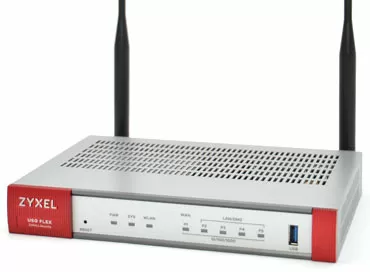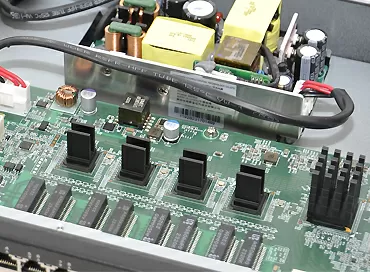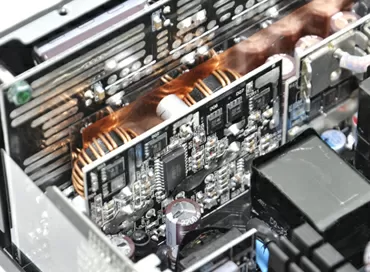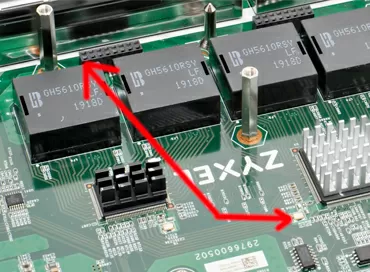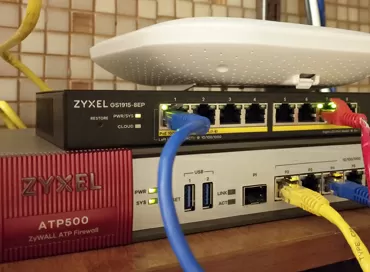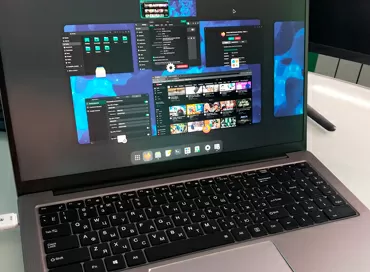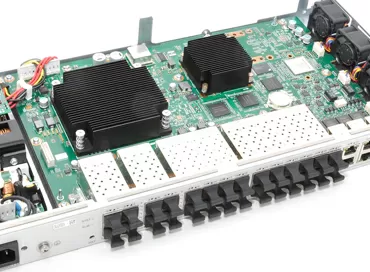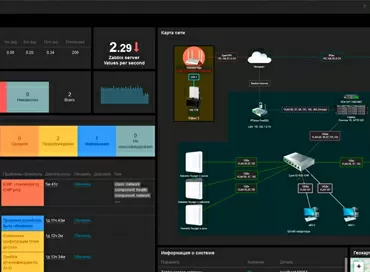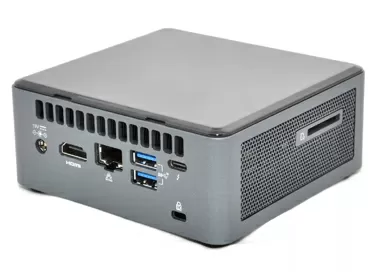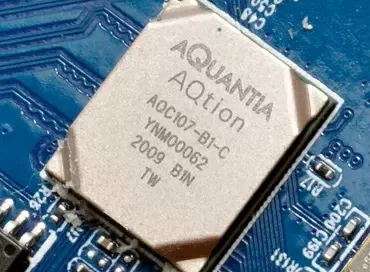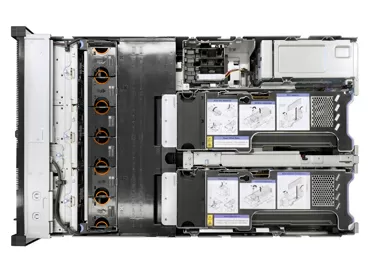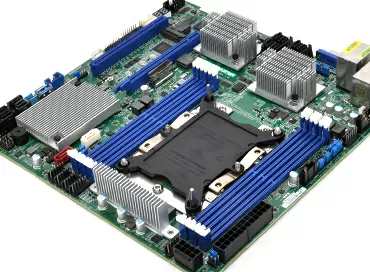Why Intel Xeon Platinum 9200 did not go to the masses
To date, no major vendor such as Dell EMC, HPE, Inspur, Lenovo, QCT, Huawei or Supermicro has announced support for Intel Xeon Platinum 9200 processors. Other vendors such as Wiwynn, Gigabyte, and Tyan also say they have no plans to support the Platinum 9200 series. HPE (Hewlett Packard Enterprise) will support the Platinum 9200 when it closes the Cray acquisition, but Cray systems are not in the mainstream market like ProLiant. Server makers and Intel are counting on a broad partner ecosystem, but it has largely rejected the Intel Xeon Platinum 9200 series since the announcement of these CPUs. In this article, we'll talk about why.
Why Intel partners are dropping the Platinum 9200 series
Instead of selling processors that a manufacturer can integrate into their motherboards, Intel supplies off-the-shelf boards with two processors in a BGA package, which means they just solder them without customization. Major system vendors also point out that Intel's proposed form factor is not attractive, because no one is used to this approach. Technically, manufacturers can make changes to the chassis and cooling system, but in fact, the Intel Xeon Platinum 9200 series of processors does not allow the main partners to differentiate in the market, releasing products that differ from competitors' analogues. You can't make changes to the motherboard by being tightly tied to how you " sees " Intel has its own brainchild.
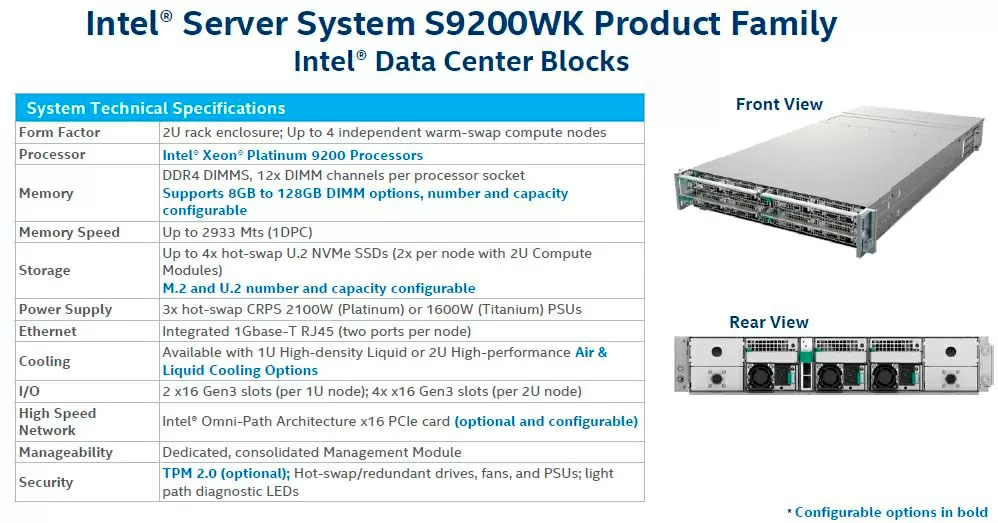
A simple example is a control system. Motherboards for the Xeon Platinum 9200 use the Aspeed AST2500 BMC processor from Intel. The Aspeed AST2500 family is used by companies such as QCT, Wiwynn, Inspur, Supermicro, Gigabyte and Tyan, but it is not universal. Servers from Dell EMC, ProLiant from HP, Lenovo ThinkServer all use their own BMCs. Features such as iDRAC, iLO and XClarity, which are the main selling technologies for every company, cannot work on the Aspeed AST2500. In addition, the Intel-designed motherboard for the Xeon Platinum 9200 has limited options for server manufacturers to use expansion cards.
Simply put, the Intel Xeon Platinum 9200 distribution model contradicts the entire ecosystem of server OEM partners built, and since this processor is not intended for the mainstream sector, the chip giant can experiment with this microscopic market share for any length of time, studying the reaction of partners and customers .
No demand
Manufacturers also cite a lack of consumer demand in the mainstream market as a reason they don't even roll out offers on this platform. Well, judge for yourself: the reference server from Intel is two 400 W BGA chips on one board, which are placed two for each height unit. A server cabinet filled with such servers will consume 80 kW, which is unrealistic in modern data centers, many of which cannot provide power even to a 40 kW rack. And for specialized facilities, there is always the option of using 4-processor servers with better cooling and higher efficiency.
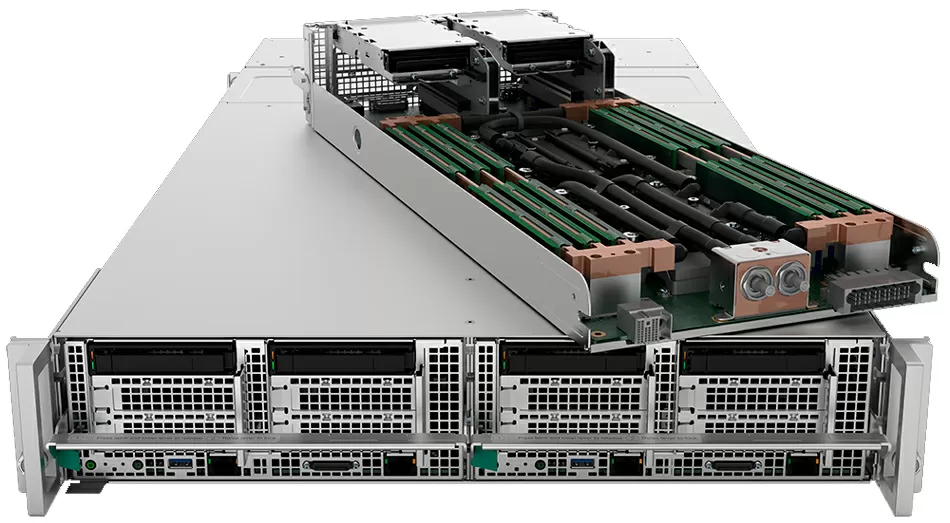
The problems with the Intel Xeon Platinum 9200 series are serious: Intel only installs these 400-watt chips in 1U nodes with two PCIe Gen3 slots and four U2 NVME SSDs. This is less than we have for dual-socket designs like the Supermicro BigTwin SYS-2029BZ-HNR or the Gigabyte H261-Z61 2U4N AMD EPYC with NVMe. A four-socket system like the Supermicro SYS-2049U-TR4 with the same core count can provide significantly more PCIe lanes for NVMe storage, networking, and accelerators.
Intel Xeon Platinum 9200 does not support Optane DCPMM. In fact, for most virtualization workloads, memory is half or less than a four-socket Intel Xeon Scalable Node with the same core count.
Conclusions
The Intel Xeon Platinum 9200 series has a well-defined niche: For density-optimized HPC applications where AVX-512 will be used in conjunction with high memory bandwidth but not high memory capacity, it makes sense. This is the ideal architecture for the HPC space where accelerators are not needed. At the same time, this is not a mainstream market architecture, suitable for the same markets that Intel Xeon Gold, Platinum 8200 and AMD EPYC servers are targeting. When you see Intel trying to use the Platinum 9200 series to compare it to the mainstream 2nd Gen Xeon Scalable and AMD EPYC, just know that the Xeon Platinum 9200 is a chimera of the market that seems to be, but exists in a very limited x86 HPC space.
Ron Amadeo
03/06.2019

